It is no secret among my Readers (especially those of long standing) that when it comes to decades. I have a soft spot for the 1950s.
It happens to be the decade of my birth (1954), and of course my memories of that time are scattered and few, but there’s a feeling about that era that has resonated with me pretty much all my life.
Now I understand that most people have a hankering for earlier times — “I wish I’d lived in the [x] period!” — and it’s brilliantly satirized by Woody Allen in his Midnight In Paris movie, where a modern-day young writer is transported back to what many consider one of the golden ages and places of writing and the arts: Paris of the 1930s, where Hemingway, F. Scott Fitzgerald and others of that ilk are the celebrities du jour, and the many soirees at Gertrude Stein’s apartment host them plus other luminaries such as Salvador Dali, Pablo Picasso and Luis Buñel. Of course, to our young protagonist, this seems to be the best time to be alive and writing, or being creative in any field. Then he meets a young woman — a struggling fashion designer — and when the two of them are magically transported back to fin-de-siècle Paris, she astonishes him by saying that she, a creature of the 1930s, would want to live in that time and not the 1930s, because she would perhaps be more successfu lback then rather than in the age of Coco Chanel.
So I’m aware of that longing, and I understand its pitfalls when it comes to talking about the 1950s as my beau ideal. Indeed, several Readers have taken me to task, outlining the many evils and perils of the 1950s — the relatively poor medicines available (compared to our modern ones), endemic racism, Puritanical social mores and so on.
And yes, I know that the technology, such as it was, was certainly inferior to ours today, whether it be telephones, cars, medicine or whatever. Nobody would want to go back to that, for sure.
But that’s not the root of my nostalgia.
Let’s just look at a few images of 50s-as-golden-age art to illustrate my point:
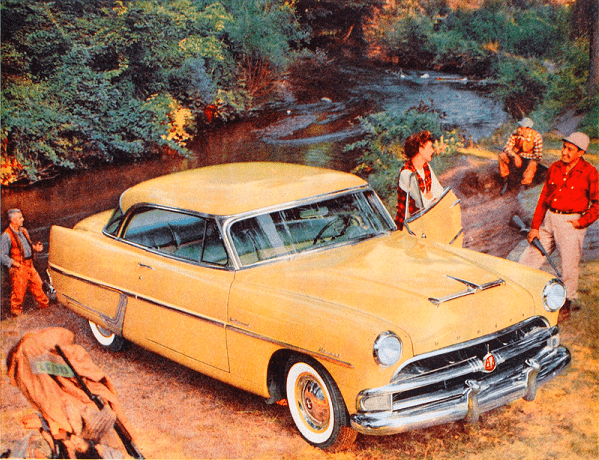
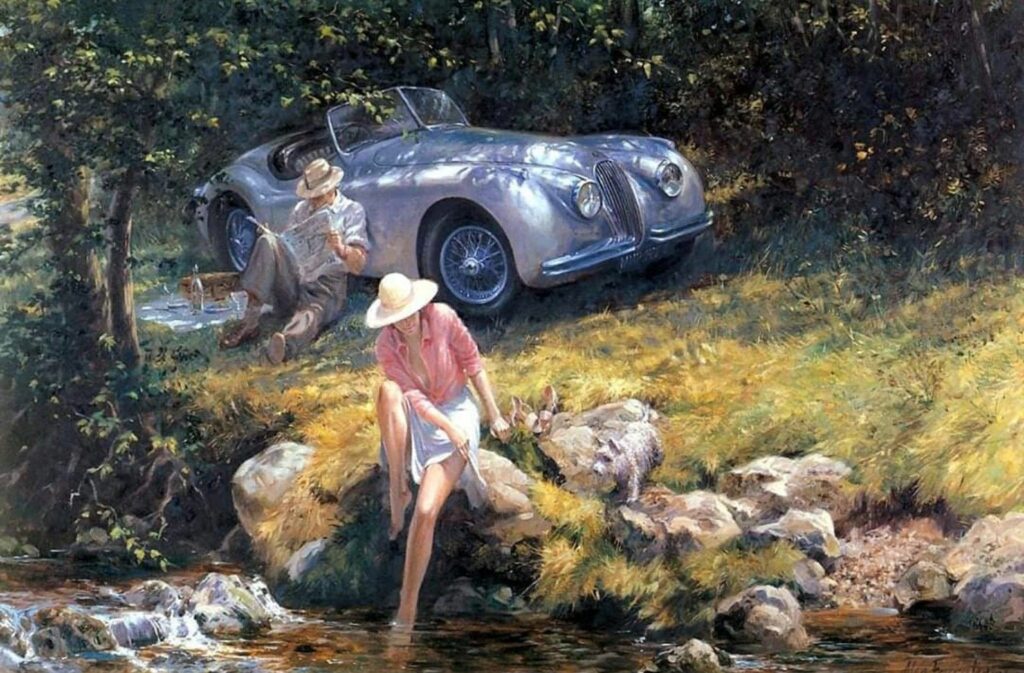
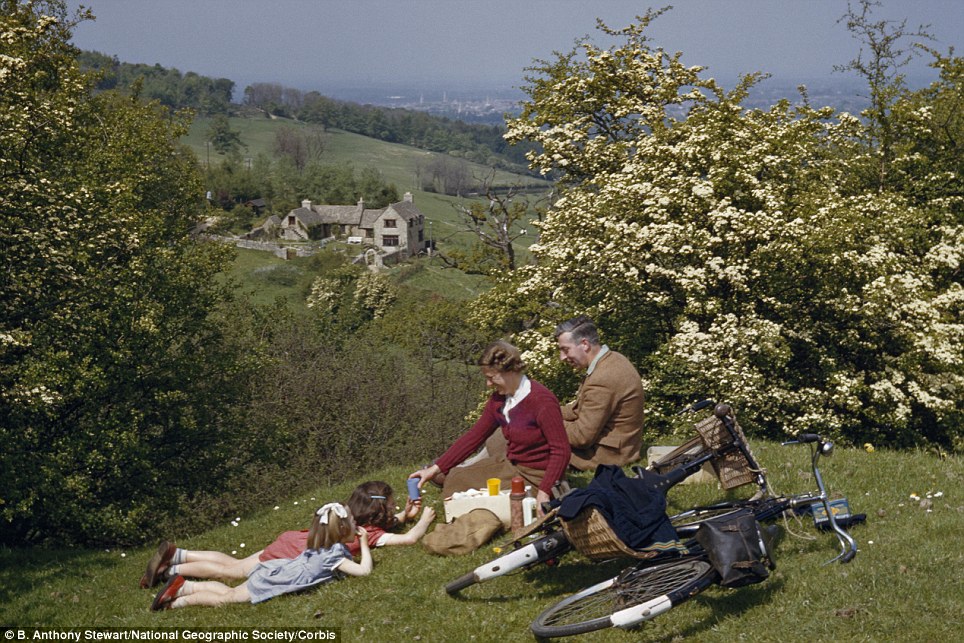
Note the simplicity of life thus portrayed: a family hunting outing, a picnic for two, and a family picnic.
I’ve written about the 1950s over the years, and here are a couple examples thereof:
I have no idea, for example, how to lower the cost of living to, say, 1950s-era levels where a family of four can live in a reasonably-modest dwelling, own one or two inexpensive cars, have enough to eat, and afford to give the kids a decent education — all on one salary, at a stable place of employment. In order to get there, we’d have to make drastic changes to our national way of life, changes that I’m pretty sure that nobody would want to make.
As a comment to Cappy’s excellent take on returning to the 1950s:
Don’t expect the world to revert to the 1950s ethos. In fact, as Cappy points out, modern society is being taught that the 1950s were a bad time because racism / McCarthyism / Cold War nuclear holocaust / oppressed women etc. What’s being omitted from the indoctrination is its purpose, which is to undermine what made the 1950s great: patriotism, a sense of honor, hard work, deferred gratification, strong family ties, Judeo-Christian morality, modest living and so on.
And:
I’m often teased by my friends (and on occasion by my Readers) for being so unashamedly old-fashioned about life, and the things and people with which we associate ourselves. To this teasing I am entirely inured, and about my attitude I am utterly unrepentant. I am a conservative man, and that’s because I believe that in our own past, and in the history of civilization, there is much worth conserving. Certainly, that is true of our recent history (the 1950s), as much or more as it is true of earlier decades and even centuries.
So yes: go ahead and laugh at my nostalgia, mock my preference for times gone by, and point out all the things that were wrong with the 1950s.
With all that said, though, I still insist that there was a whole about the 1950s that wasn’t shit: the culture, the fact that the lines between right and wrong were a lot less blurred, and the roles of the man and woman a lot better defined — and we were all the better for it.
I won’t even talk about the cars…
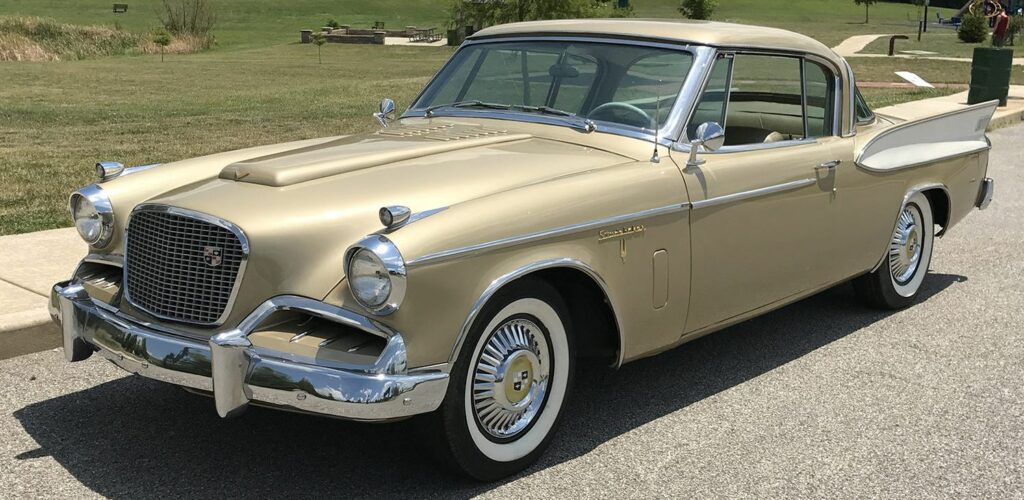



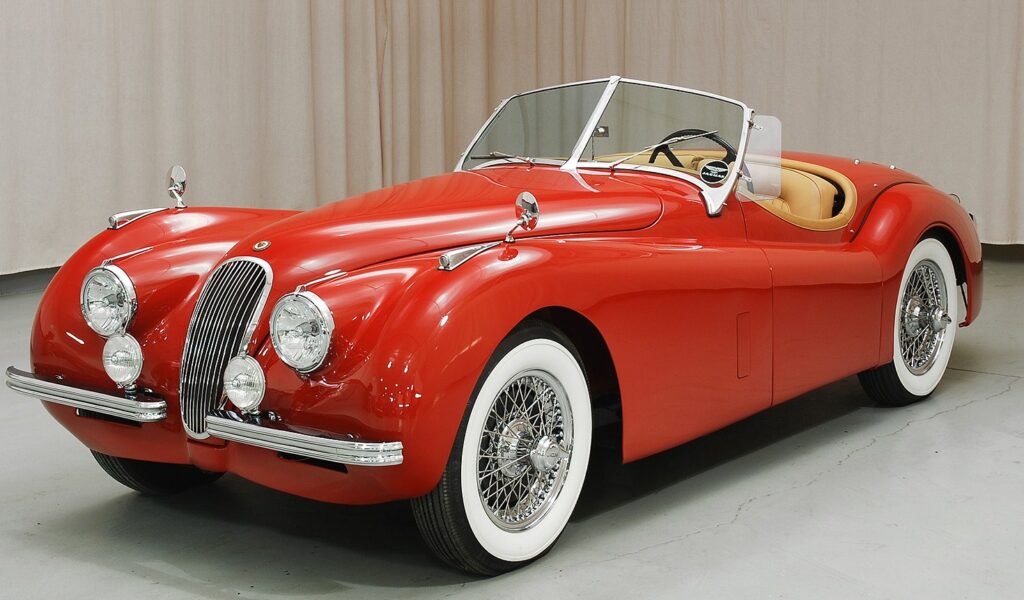
Not much wrong there, either.

I was born in the 80s and part of me would like to live in the 80s. Ronald Reagan as president. Simpler times. Maybe like Kim said it’s nostalgia.
I thought that the early 2000’s were a decent time, before the (un) patriot act (which was originally supposed to detect and slow or stop terror) came along. I also really like the vehicles from the early 2000’s. Back then I could not afford those vehicles, but compared to today they were cheap. Toyota Tacoma (2000 to 2010 models) Honda CRV and Element and Toyota FJ Cruiser.
Maybe when Trump takes office he can clean some of the bullshit in life in this modern day. This country needs a serious enema.
Kim! Just stop doing this, it is making me homesick in spades and sadly, we can not bring back what was other than to mind.
I am 2 years your senior and do in fact remember clearly the family travels and the summer gatherings with friends. Did you know a wind up Victrola record player, the one with the giant sound horn off the tone arm, works just fine using a cactus needle as a sound pickup stylus? Well, that was a child learning from an 80+ year old former head master (my father’s school which BTW was same school I went to 30 years later) during a Sunday visit, whilst sitting on the lawn. Sigh!.
Born 1946, for my the best périod was 60, 70, 80. ” Les Trente Glorieuses ” as whe say here. ( The Glorious 30 ). the cars weren’t bad either.
William Lind, of 4GW fame, has a book called “Retroculture” where he argues that it is possible to live as though in a previous decade. He claims that there are people actually doing it. Pick a target … the 50’s, the 20’s, Victorian … and build your life around that. Everything you buy and use and the way you run your household or teach your children will be appropriate to the time period. I don’t know that he demonstrates that it’s practical, but he makes a case that it’s possible and desirable as an antidote to our modern predicament. He also incorporates the idea into his future history novel, “Victoria” (written as “Thomas Hobbes”), where it works quite nicely as society has crashed and is in the process of rebuilding while leaving out the things that need to be left out. It’s highly recommended, especially for folks with the kind of nostalgia that Kim describes.
I was born in ’41, graduated in ’58 with a small high school class just far enough from NYC that my dad took a train ride to work every morning Mon-Sat. Only 95% volunteered for the service, some used our 2S deferral to further out education, but even we volunteered upon graduation.
Racism: ya’ gotta be kiddin’ me! Christian, Catholic, Jew, and Hindu, White, black, yellow, and brown. We were a meld. Yes, white girls went out with white guys, Catholic girls went out with Catholic guys; those were the times and, besides which, even today, “birds of a feather…”, but race hatred (and strong division) didn’t begin to manifest until Obama and Sharpton – IMHO; well, that I noticed, anyhoo, I don’t know about you(?).
The family unit was stable until ever increasing inflation (caused by government spending policies, increased printing of money, and Nixon’s going off the gold standard that backed the dollar) shoved the average middle-class American family into ever high tax brackets that were originally meant to soak the wealthy (who supposedly could afford it; a Marxist proposal from FDR’s reign): now we’re all “wealthy” living off bread crusts ‘cept for the politicians.
Personally: I’d very happily go back to the “terrible” times of the ’50s.
It is all trade-offs. The 50s were simpler (unless maybe you were black in the south) but they were also much poorer. GDP per person was about 5 times less than it is now. The poverty line was lower and there were a lot more people under it.
Certainly if you had money, things were probably better relatively. It is easier to live well with money in a poor society than a rich one.
Being close enough to your age to recall (and now miss) many of the same things, I sometimes think the period between say 1876 and WWI may have been a very interesting period to have been alive in this country in spite of the faults of that era that I’m sure some will find. Although given the state of medicine then, I’d not be alive to this age.
Interesting that suddenly I’m able to watch a lot of late 50s/early 60s western TV shows on the streaming networks: Tombstone Territory, Wagon Train, Death Valley Days, Wyatt Earp, etc. They seem to all be rated PG-13 now.
I’m sure the benefits of the 50s can be kept.
1) tight family unit
2) closer relationships to society
3) good paying jobs, economic prosperity
4) set roles in society, celebrate the good change the unacceptable ones
5) work life balance
6) stronger sense of morality
7) many returning veterans took advantage of the GI Bill for education. WEre there low interest home and business loans for GIs?
8) Explosion of consumer goods once military production was turned towards civilian wants
9) interstate highway system was being built
Down sides:
a) race relations
b) threat of communism/ nuclear war
c) polio and disease
I think the perception is that people were satisfied then. This might be referred to the Harvard study on happiness. https://www.health.harvard.edu/blog/the-secret-to-happiness-heres-some-advice-from-the-longest-running-study-on-happiness-2017100512543
a) race relations: The USA was about 90% White, and the only real “race relations” were with blacks. Blacks have spent the last six decades proving that we had it right back then.
b) are you kidding me? We just had a Commie get thisclose to being President. And I’d argue that we are closer now to seeing nukes unleashed in battle now than any time since 1945.
c) with polio, you have a point – but we are far sicker and fatter now than ever, and the Covidiocy should prove that we are more susceptible to lab created disease than at any time in modern history.
RE: “Blacks have spent the last six decades proving that we had it right back then.”
What the last 6 decades has shown is that LBJ’s efforts to lock the black underpass in place with welfare amd other “aid” was successful. The level of pathology in the black underclase now is about 10 X what it was before LBJ. The white underclass has had a similar transformation, it just gets ignored because it is not as large of a percentage of the whole population.
You can see that it is a cultural phenomenon (as opposed to race) by noting that black Republicans are single most law abiding subgroup in the country. (And other factors prove it as well.)
So, why do Sub-Saharan Africans display the same behaviors everywhere they exist, even where LBJ never had influence? Did the Great Society have sway in Haiti?
Your thesis is incorrect. For instance, Nigerian immigrants in the US out earn US natives on average (and most black immigrants from Africa do well generally too).
Haiti has been a shithole since the beginning – it is what it is. Other places I the Caribbean don’t have the same issues, that makes no sense if it a race thing.
Even if there is some genetic factor, it is overwhelmed by cultural as an influence,